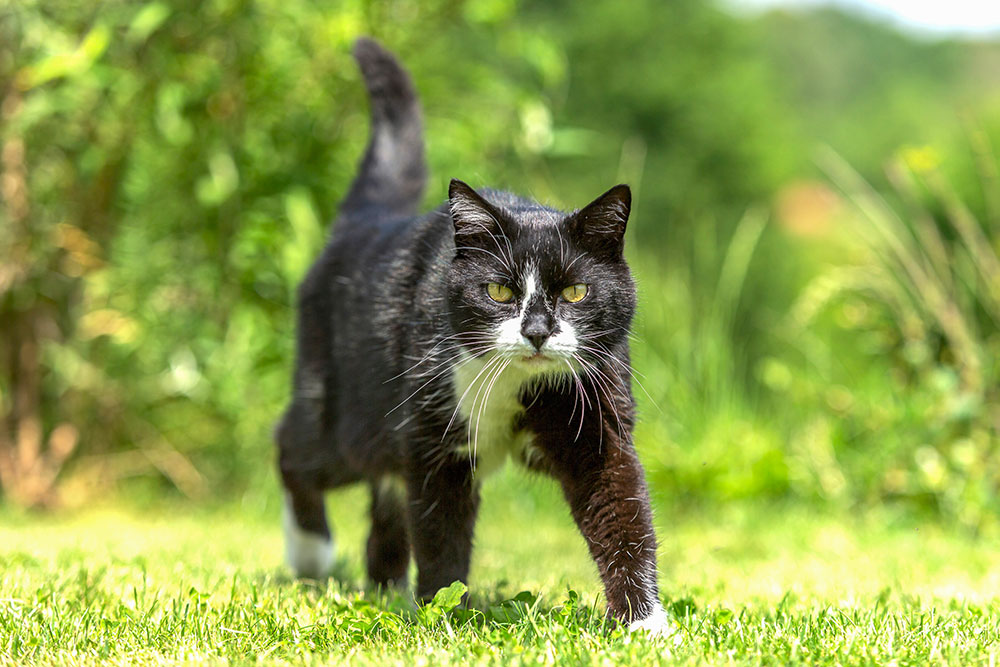Understanding Aging in Cats: Recognizing and Managing Common Senior Diseases
As our feline companions grow older, their needs begin to shift—and often, subtly. What once seemed like normal quirks or lazy behavior might actually signal the early stages of a health condition. Just like people, aging cats are more susceptible to chronic illnesses, many of which can be managed successfully with early intervention and regular veterinary care.
At Driftwood Animal Hospital, we believe aging shouldn’t mean a decline in quality of life. With attentive care and routine screenings, senior cats can continue to live comfortably, happily, and for many years to come.
What Is Considered “Senior” for a Cat?
Most cats are considered senior between the ages of 11 and 14. Once they pass 15, they enter what’s referred to as the geriatric stage. At these life stages, subtle changes in behavior, appearance, or habits can be important clues to underlying medical issues.
While some cats age gracefully with minimal concerns, others may begin to experience declines in mobility, energy, or organ function. Understanding what’s normal—and what’s not—is key to helping them thrive.
Explore veterinary care recommendations for senior pets
Common Health Issues in Senior Cats
Below are some of the most frequently diagnosed conditions in aging cats, along with the symptoms that can help you recognize when it’s time to seek veterinary attention.
Arthritis and Joint Pain
Cats are masters of disguise when it comes to pain. Arthritis, though common, is often underdiagnosed because signs can be so subtle.
What to look for:
- Hesitation or refusal to jump onto furniture
- Stiffness after resting
- Reduced grooming or matted fur on lower back
- Increased irritability when touched
Supportive care may include: joint supplements, pain relief medications, and environmental adjustments.
Learn more about feline arthritis
Chronic Kidney Disease (CKD)
CKD is one of the most common age-related conditions in cats. The kidneys gradually lose function over time, making waste elimination less efficient.
Symptoms to watch for:
- Increased thirst and frequent urination
- Weight loss and poor appetite
- Vomiting or foul-smelling breath
Diagnosis is typically confirmed through bloodwork and urinalysis. Early dietary changes and hydration support can greatly improve comfort and longevity.
Read more on chronic kidney disease in cats
Hyperthyroidism
This metabolic disorder speeds up nearly every system in the body, often leaving owners puzzled by sudden behavioral and appetite changes.
Common signs include:
- Significant weight loss despite increased appetite
- Restlessness or hyperactivity
- Increased vocalization and thirst
Treatment options range from daily medications to dietary therapy or radioactive iodine treatment.
Learn about hyperthyroidism treatment options
Diabetes
Diabetes in cats is most common in middle-aged to older felines and is often linked to obesity or other endocrine disorders.
Symptoms may include:
- Excessive drinking and urination
- Sudden weight loss
- Weak hind limbs or a plantigrade stance
Management typically includes insulin therapy, dietary adjustments, and close monitoring.
More on managing feline diabetes
Cancer
Cancer can present in many forms, from lumps and bumps to internal tumors that affect appetite or energy.
What to watch for:
- Lethargy or sudden weight loss
- Persistent vomiting or diarrhea
- Unexplained swelling or mass
Early detection is crucial. Depending on the diagnosis, treatments may include surgery, chemotherapy, or supportive care.
Learn more about cancer types in pets
Feline Cognitive Dysfunction (Dementia)
Cognitive decline in senior cats may resemble senility in humans, affecting memory and behavior.
Common changes:
- Disorientation or staring at walls
- Increased vocalization, especially at night
- Litter box accidents or restlessness
Though not curable, it can often be managed with dietary supplements, environmental enrichment, and medications.
Read more about feline cognitive dysfunction
Preventive Care and Quality of Life
The Importance of Routine Vet Visits
Senior cats benefit greatly from biannual exams, even if they appear healthy. These visits allow your veterinarian to track trends and catch issues early—before they become major problems.
Typical senior screenings include:
- Complete blood panel and urinalysis
- Thyroid and kidney function tests
- Blood pressure checks
- Dental and orthopedic evaluations
Learn more about preventive testing for senior pets
Creating a Senior-Friendly Home
Cats rely on consistency as they age. Small changes can go a long way:
- Use litter boxes with lower sides for easy entry
- Avoid rearranging furniture or changing routines suddenly
- Offer multiple water bowls in quiet, easy-to-access areas
Tips on behavioral support for older cats
Supporting Mobility and Comfort
- Add ramps or pet stairs to help access beds or favorite windowsills
- Offer heated beds or soft pads for comfort
- Use raised food and water bowls to reduce joint strain
- Encourage light play or movement to maintain muscle tone
Download the Mobility Matters Guide
How Driftwood Animal Hospital Supports Senior Cats
At Driftwood Animal Hospital, we specialize in helping senior pets age with grace and dignity. Our services for older cats include:
- Wellness plans customized for age and medical history
- Nutritional counseling for senior or prescription diets
- Pain management for arthritis and chronic conditions
- Supportive care for cognitive decline and mobility loss
Explore our full list of services
Take the Next Step for Your Cat’s Health
Aging doesn’t have to mean decline. With proactive veterinary care, lifestyle adjustments, and a watchful eye, your cat can continue to live a full and happy life well into their golden years.
If you’ve noticed any changes in your senior cat’s behavior or appearance—or simply want peace of mind—schedule a wellness visit with our team.









Leave A Comment